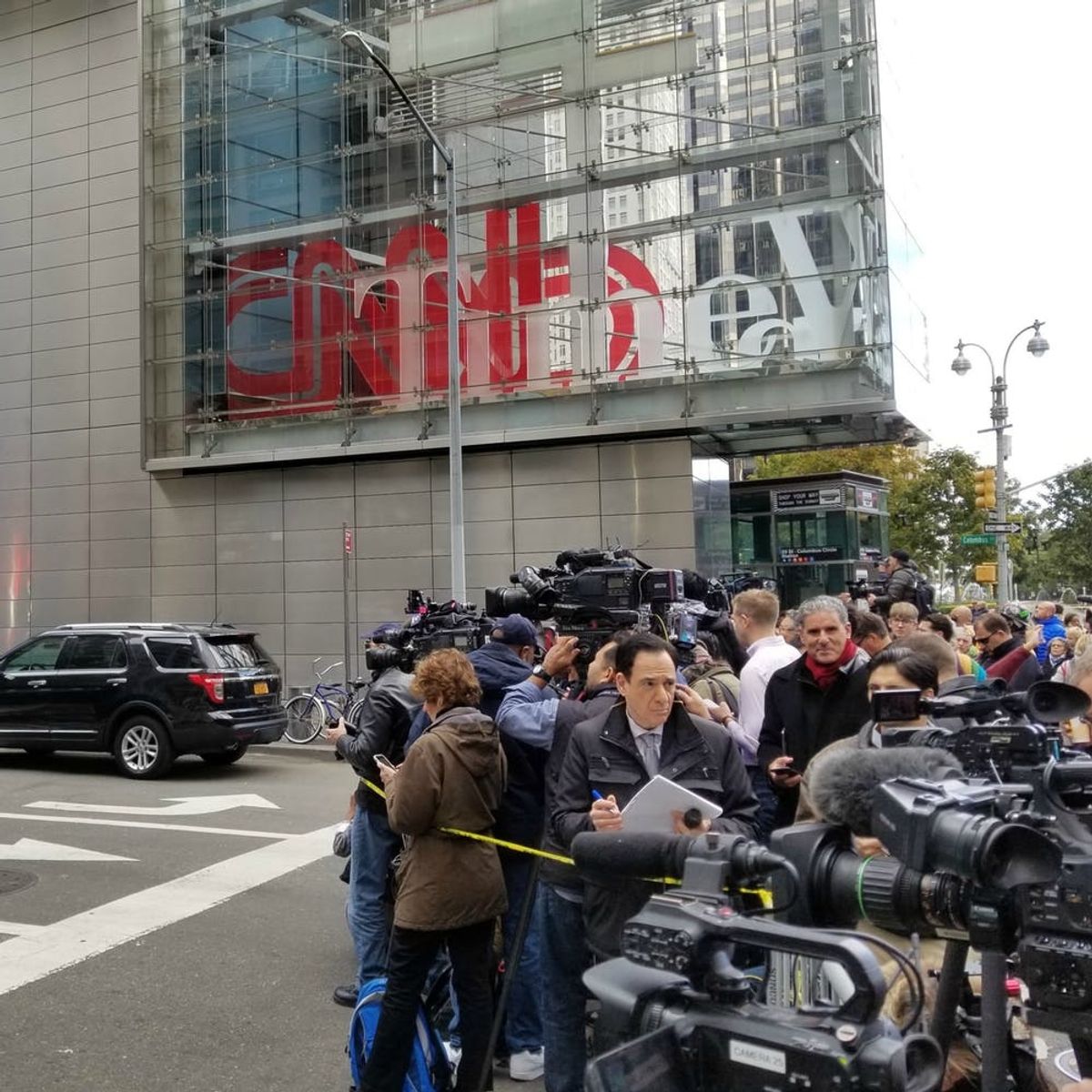Doing This Can Help You Keep on Top of Breaking News

Americans woke up Wednesday morning to news that suspicious packages possibly containing explosive devices were intercepted en route to the homes of former president Barack Obama and former secretary of state and first lady Hilary Clinton. By 10 am EST, CNN’s New York offices were evacuated live on-air and reports surfaced that former DNC chairperson Debbie Wasserman Schultz may have also been targeted. That news follows reports of a bomb mailed to billionaire (and Democrat funder) George Soros earlier in the week.
While the news continues to move quickly, it can be easy to feel overwhelmed. But taking a step back and remembering a few key points about breaking news reporting can help get you through.

New York Public Radio’s On the Media has created several guides for people feeling overwhelmed by the barrage of the 24 hour news cycle, and their ‘handbook’ to deal with terrorist news is not only helpful on days like today, but any time we find ourselves bogged down by breaking stories.
First and foremost, it’s recommended to remember that in the immediate aftermath of any event, nearly every news outlet will get something wrong. Terrorist treats, in particular, are designed to confuse people and scare citizens. Even outlets with pristine journalistic practices, eyewitnesses, and government officials need time to get the facts straight.
On the Media also wants us to remember that when news outlets are reporting, look out for the media using local, named and verified sources. Unnamed sources, or those who aren’t involved directly with the event, shouldn’t be trusted.
And while you’re keeping an eye out for verified sources, it’s important to focus on consistent reports versus contradictory information. Rational thinking is key in these scary moments. It’s also recommended to pay attention to the credentials of experts that appear on TV. Just because someone worked for the police department in your city, it doesn’t mean they are an expert.
Don’t listen to politicians, who may attempt to leverage the events for political gain. But do pay attention to the words used by media to discuss the events, and what those words imply.
If anyone tries to blame an entire cultural or religious group, it’s important to completely tune that out. It’s the actions of a few and not of the many that need to be exposed and blaming an entire group for a few people’s actions is wrong.
Most importantly, during scary times, it may seem like we also need to jump on everything. Patience, combined with resisting the urge to share every single tweet or post you see will help slow misinformation from spreading further.
(Photo via Islam Dogru/Anadolu Agency/Getty Images)

















